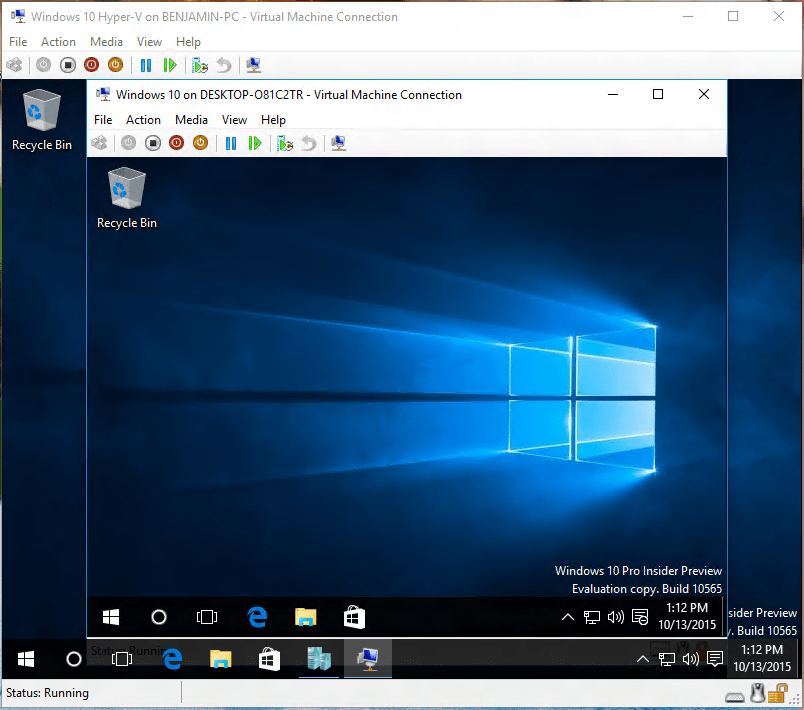
%20-%2051197628594937.jpg)
After querying the Connection Broker, the Redirector sends an RDP redirection packet back to the RDS Client

Let’s take a quick look at the fairly simple high-level RDS-V topology: A quick note here, the Hyper-V server role has to be installed on the same system that has the RD Virtualization role service installed. If the user does not have a disconnected session, a VM in the pool is dynamically assigned to the user – if one is available. If the user has a disconnected session then they are reconnected to that VM. If the user is connecting to a shared virtual pool, then the RD Connection Broker checks to see if the user already has a connected session in the pool. If the VM is not turned on, RD Virtualization turns on the VM and then connects the user. If a user is assigned and requests a personal virtual desktop, RD Connection Broker redirects the user to this virtual machine. RDS-V uses the Remote Desktop Connection Broker to determine where the user is redirected.

OK, there are way too many technical buzzwords in that last sentence, aren’t there? Simply put, in the same way that RemoteApp makes applications available to users through individual Remote Desktop Services sessions, RDS-V provides access to specific virtual machines (desktops) through a similar mechanism. RDS-V provides remote desktop access to managed desktop environments hosted in Hyper-V on Windows Server 2008 R2. You may also hear RDS-V referred to as Virtual Desktop Infrastructure (VDI). Today we’re continuing on with Remote Desktop Services, with a look at Remote Desktop Services Virtualization (or RDS-V, for short). CC Hameed continues his awesome posts on the new presentation virtualization technologies in the Windows 2008 R2 and Windows 7 suite.


 0 kommentar(er)
0 kommentar(er)
